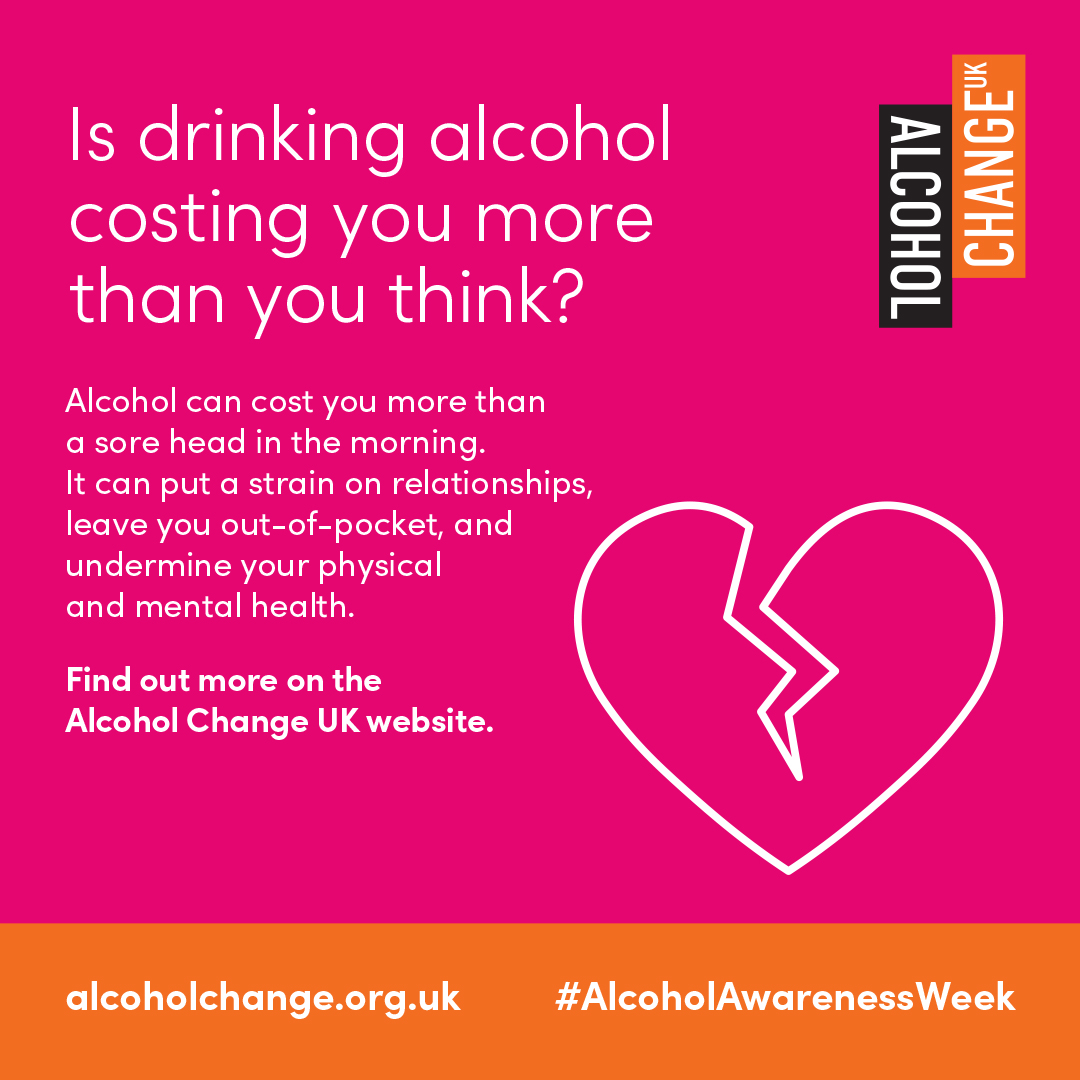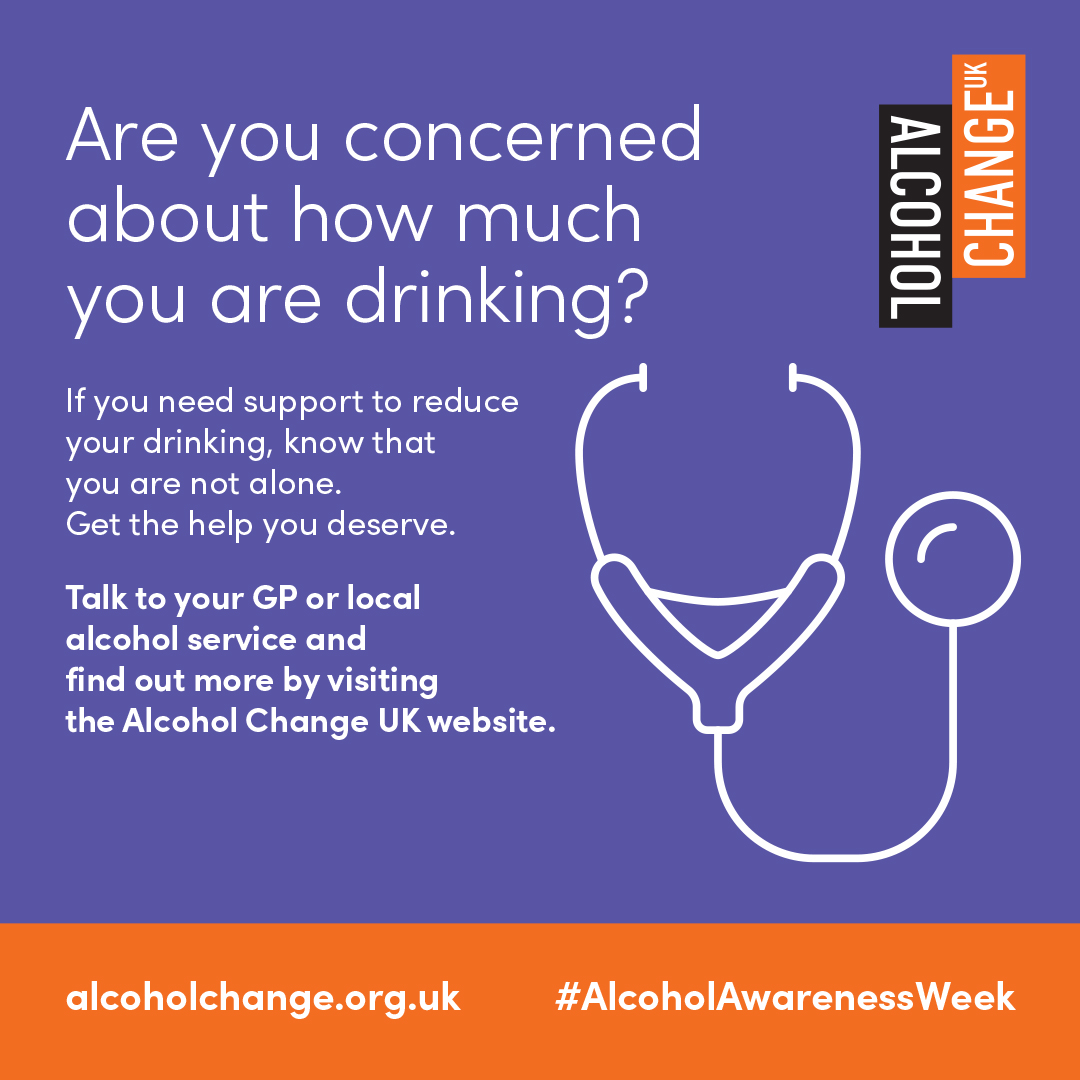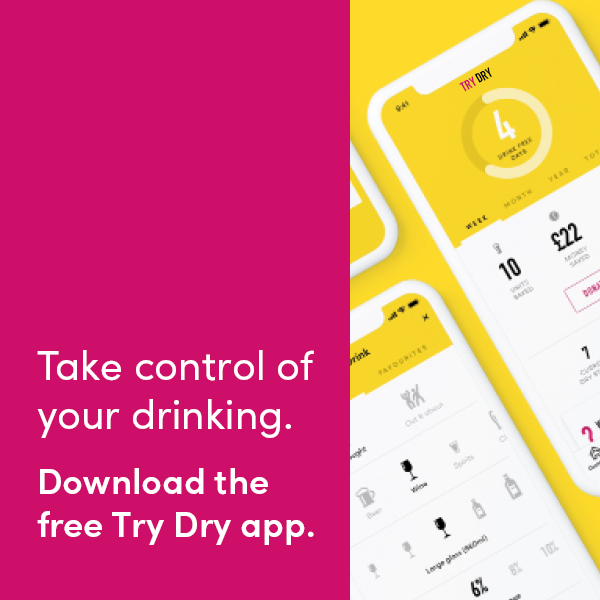
Ask DadPad, Being a Dad, Health & Wellbeing
Ask DadPad: How much alcohol should I be drinking as a new dad?
Posted on 7th July 2023
This week is Alcohol Awareness Week, which gives us a great opportunity to pull together a short-ish blog post providing an overview for expectant and new parents on the current UK guidelines on alcohol intake and also on some of the key factors to consider if you’ve potentially got an unhealthy relationship with alcohol and are about to become a new dad…. As always, we’ll also include links to further reading and sources of support. We’ll also share, across the blog, some of the graphics that Alcohol Change UK have produced to support this year’s campaign.
How much is enough?
The current recommendation for adults – in order to keep health risks from alcohol to a low risk – is to:
- drink no more than 14 units per week,
- spread your drinking over three or more days if you regularly drink as many as 14 units a week, and
- aim to have a few alcohol-free days each week.
If you’re unsure whether you’re drinking more than you perhaps should be, it’s worth having a look at helpful online tools, such as Alcohol Change UK’s unit calculator.
How much is a unit, though?
This is a tricky one, as our perception of what constitutes a unit of alcohol might be wrong and, if so, might mean that we’re actually consuming more alcohol than is safe.
The NHS tells us that one “unit of alcohol is 8g or 10ml of pure alcohol”. As this in itself isn’t particularly helpful, they also provide some examples of what that looks like in some common alcoholic drinks. For example:
- half a pint of lower to normal-strength (e.g. around 3.6% strength) lager, beer or cider works out at one unit;
- a single (25ml) shot measure of spirits is also around one unit; and
- a small (125ml, 12% strength) glass of wine is around one-and-a-half units.
Should we be drinking if we’re trying to get pregnant?
There’s a useful NHS webpage which is worth a look if you and your partner are currently – or thinking about – trying to get pregnant, as it provides an overview of some of the key lifestyle changes you might want to make in order to improve your chances of success.
In relation to alcohol, the webpage notes that: “Drinking alcohol excessively can affect the quality of sperm”. There’s a bit more detail on the “Is alcohol harming your fertility?” page of the Drink Aware website, which reports that:
- drinking more than the recommended weekly amount of 14 units can also lower your testosterone levels, and can also harm your sexual performance; and
- alcohol can inhibit the testes from performing their function, leading to sperm either failing to properly develop and/or reducing their ability to move successfully towards an egg.
And, as alcohol can also affect your partner’s ability to conceive – for example, even light drinking can reduce her fertility – it’s therefore a really good idea for both of you to stop drinking from the moment you start trying to get pregnant right through until (at least) baby is born.
Is it ok for us to drink when my partner is pregnant?
As drinking alcohol can cause damage to an unborn baby, the advice is that it is safer for women not to drink any alcohol during pregnancy. The NHS Better Health Start for Life website explains the reasoning behind this recommendation in a bit more detail, including a link to an overview of foetal alcohol spectrum disorder, but now might be a good time for both you and your partner to at least cut back on, if not completely give up (even if just for a while), drinking alcohol.
There are some great suggestions on the Tommy’s webpage – Tips for an alcohol-free pregnancy – on ways to help mum avoid alcohol during pregnancy, and this includes having a ‘sober-buddy’. As this can really help a mum-to-be who’s struggling with not drinking, it’s another brilliant reason why you might also want to consider giving up drinking alcohol during her pregnancy, so that she feels supported.

So can we start drinking again once baby is here?
Clearly, once baby is born and is no longer connected to mum’s blood supply, the risk of passing alcohol from mum to baby via her bloodstream disappears and so, in theory, you can both start drinking again. However, there are a number of other points that you might want to consider before you do so.
Firstly, if mum is going to be breastfeeding baby, it’s important to be aware that alcohol can pass from mum’s body into her breastmilk. However, the current NHS advice is that “an occasional drink is unlikely to harm your baby, especially if [mum waits] at least 2 hours after having a drink before feeding”. Either way, it’s advised to keep alcohol levels low at this time, as drinking too much alcohol can decrease mum’s milk supply and could also cause problems with baby’s health and wellbeing.
Of course, as a new parent, one of the most common and most challenging things you’ll experience is sleep deprivation and, at times, it’s tempting to think that a quick drink or two before bedtime will help you sleep better. There’s a whole load of reasons why you shouldn’t do this, though, including the fact that baby is likely to wake at some point during the night to demand food – loudly – whether you’ve had a drink or not.
Being calm and in full control of your senses, then, is not only better for you but also safer for baby. Extreme tiredness coupled with a screaming baby is challenging for the best of us – trying to manage this when you’re a little bit drunk or hungover might increase the risk of you doing something you’ll regret. If you are planning on having a number of drinks, the NHS recommend that your baby should be cared for by an adult that has not had any alcohol, as the alcohol intake might make you less aware of your baby’s needs, again putting your baby at risk. And if you’re struggling to cope with a crying baby, do have a look at our blog post on this topic.
This is because there are also increased risks relating to keeping baby safe when asleep if either of you have had an alcoholic drink. The Lullaby Trust – who provide expert advice on safer sleep for babies – recommend that you do not co-sleep (i.e. sleep in the same bed space) with your baby if either you or your partner have drunk any amount of alcohol, as this puts your baby at a much higher risk of sudden infant death syndrome (or SIDS – previously called ‘cot death’). Instead, you should always place baby in their own safe sleep space, such as their cot or Moses basket. You can find out more about the safer sleep advice for babies via our blog posts, including our How do I keep my baby safe while they sleep? article.
Another potential issue with alcohol which it’s definitely worth being aware of as you and your partner make the often-tricky transition to new parenthood is that it can alter both our mood and our inhibitions – raising the risk of things being said or done that we later regret. Becoming new parents is a time when we need to be actively working to support each other, to be communicating positively and openly, and being alert to the needs of the other; drinking alcohol can affect our ability to do all or any of those things positively. There’s evidence, for example, that there are clear links between alcohol and instances of domestic abuse, and also that there are long-term negative consequences of drinking alcohol in relation to our mental health. And the impact of that, of course, is that your baby might not be getting the best start in life…
In short, then, the key points to be mindful of are as follows:
- both mum and dad should ideally avoid drinking any alcohol from the minute that you decide that you might want to try for a baby, in order to give yourselves the best chance of success and also to give your unborn baby the best and healthiest start to life;
- you should both continue to avoid alcohol throughout her pregnancy, in order for baby to get the best chance to grow strongly and healthily in her womb and for mum to feel supported in this choice;
- once baby is here, it’s theoretically ok to start drinking again, even if mum is breastfeeding, but there are a number of matters to be mindful of, including the risk of passing alcohol through her breastmilk to baby, and the increased risks of dangerous situations arising when caring for baby if either of you have had a few drinks; and
- it’s therefore best to only drink in small and occasional quantities once baby has been born, following NHS guidance.

I think I might need help…
Of course, becoming a new dad (or new mum) is a time when many of us will be looking closely at our lifestyles, and perhaps realising that there are some aspects that we might need to address and/or need help with, if we’re really going to be the best parent that we possibly can be to our new baby. If, having read this blog and/or any of the linked articles, you feel a bit concerned about your own (or maybe your partner’s) relationship with alcohol, then the best plan is to book an appointment with your GP to discuss your options and next steps. You might also want to consider any of the support groups, organisations and helplines listed below.
Whatever you decide to do, remember that your baby is relying on you and your partner to give them the best start in life. They’re going to want a dad who is alert, interested and engaged in their lives, who makes them feel loved and safe and, most importantly, is around for them – and all the evidence suggests that having a parent who drinks too much can have a real, negative impact on their life, on their self-esteem and on their long-term mental health and wellbeing. What better incentive could there be?
Remember – you matter… and if you’re in a place where you’re not totally convinced of that, have a read of our Why dads’ mental health matters and Your role in your infant’s mental health blogs, both of which focus on the unique and important role of dad in a new family.
Who can help me?
There are some great support services and sources of information available online:
- NHS Tips on cutting down webpage
- NHS Alcohol support webpage, including links to support groups such as Alcoholics Anonymous (AA) and SMART Recovery
- NHS Better Health Drink Less webpage, including a link to download the Drink Free Days app
- Alcohol Change UK Try Dry webpage, with information on and links to download their Try Dry app
- Drink Aware (independent charity which aims to reduce alcohol-related harm by helping people make better choices about their drinking) webpage outlining a range of alcohol support services.
- Drinkline (national alcohol helpline) – 0300 123 1110 (9.00 am-8.00 pm Mon-Fri, 11.00 am-4.00 pm Sat-Sun)

Further reading and references:
NHS webpages:
- Alcohol misuse – overview
- Alcohol units
- Better Health – Drink less
- Breastfeeding and drinking alcohol
- Drinking alcohol while pregnant
- Foetal alcohol spectrum disorder
- How can I improve my chances of becoming a dad?
Other webpages:
- Alcohol Change UK – Alcohol and relationships leaflet: how alcohol can affect us
- Alcohol Change UK – Alcohol and mental health
- Alcohol Change UK – Parents who drink too much
- Drink Aware – Alcohol and men
- Drink Aware – Is alcohol harming your fertility?
- Tommy’s – Can I drink alcohol during pregnancy?
- Tommy’s – Tips for an alcohol-free pregnancy

